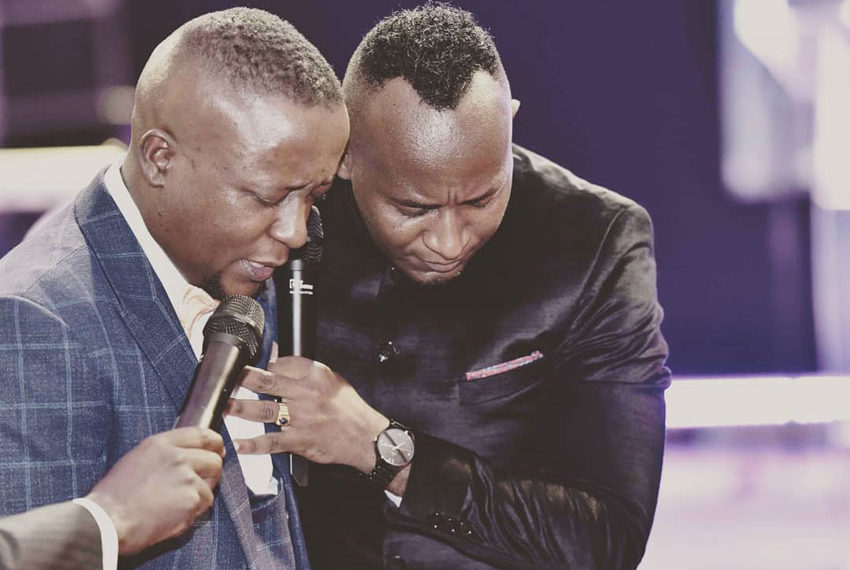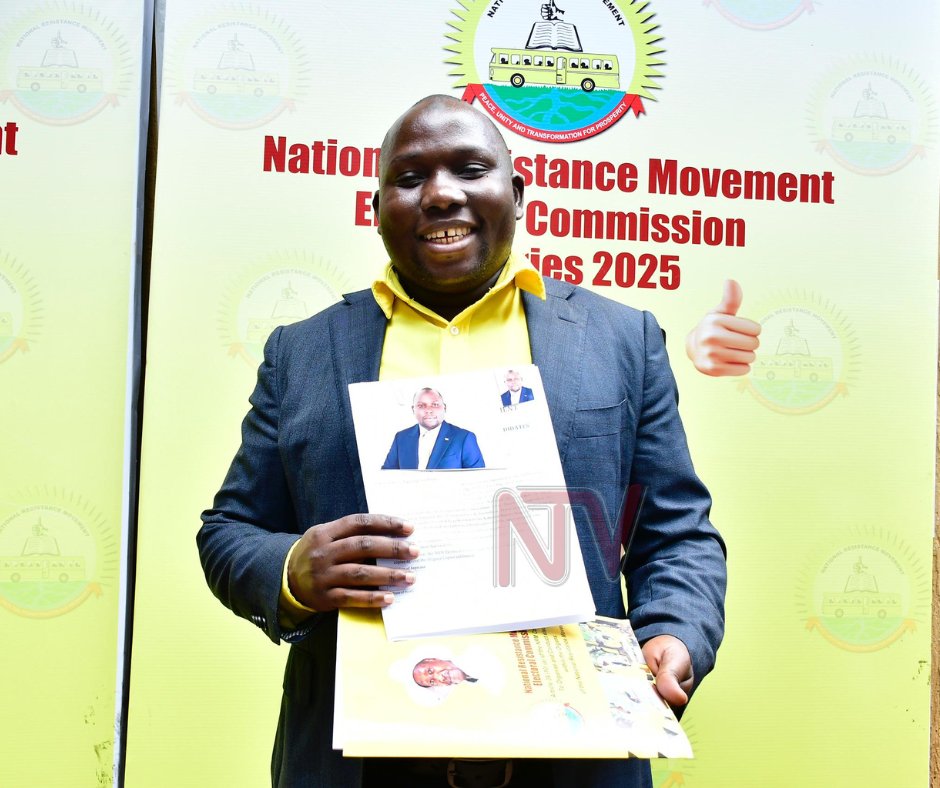When former sports journalist and political commentator Joseph Kiiza Kabuleta stood before cameras and declared himself the presidential flag bearer of the National Economic Empowerment Dialogue (NEED), many within Uganda’s political circles were not surprised. To some, this moment was the inevitable outcome of a journey that began years ago — not in the corridors of Parliament, but in a controversial prophetic gathering where he famously knelt and kissed the shoes of self-styled prophet Elvis Mbonye.
It was at that 2017 event, amid cameras and congregants, that Mbonye reportedly prophesied Kabuleta’s ascension to Uganda’s presidency. The prophecy, coupled with Kabuleta’s deep loyalty to Mbonye, would go on to shape his political confidence, his belief in his personal destiny, and his confrontational political style.
Those close to Kabuleta say the Mbonye prophecy planted in him an unshakable conviction that his rise to State House was inevitable — a conviction that has guided many of his political decisions. Critics within NEED whisper that this “divine certainty” sometimes blinds him to party consensus and fuels an attitude of self-entitlement to the top political seat.
“It’s not just politics to him — it’s prophecy,” one former ally in NEED told this publication. “That’s why he didn’t think twice about declaring himself flag bearer without consulting the National Executive Committee. He believes the position is already his by destiny.”
Before NEED became a political party, Kabuleta was a key figure in ROCK (Reclaim Our Country and Kin), a pressure group formed with other activists and opposition figures. In those early days, the group was united around exposing corruption, resisting authoritarianism, and pushing for democratic reforms.
However, tensions quickly emerged as Kabuleta consolidated control. Several founding members allege they were sidelined or outright dismissed from leadership positions when they challenged his leadership style or questioned his loyalty to the group’s collective decision-making process.
One ex-ROCK member recalls:
“We started as equals, but it became about Kabuleta’s personal brand, not the cause. Those who didn’t fit his vision — or prophecy — were shown the door.”
NEED’s transformation from pressure group to political party in 2022 gave Kabuleta a formal platform, but also deepened internal divisions. Allies from the ROCK era accused him of rewriting the party’s priorities around his presidential ambitions rather than building a sustainable opposition movement.
The recent self-declaration as presidential flag bearer has rekindled old grievances. Party insiders say the announcement was made without broad consultation, bypassing internal structures and leaving several senior members blindsided.
Some NEC members view it as a deliberate power grab aimed at cementing his place as the uncontested face of NEED — a move they say undermines the party’s democratic credibility.
“This wasn’t an election; it was a coronation,” said one member who requested anonymity. “The prophecy has become the constitution.”
Despite criticism, Kabuleta retains a loyal base, many of them young Ugandans drawn to his outspoken criticism of the Museveni government and his “Money in Your Pocket” economic empowerment message. To them, his confidence is not arrogance but conviction — a leader who knows where he is going.
However, his political opponents — both within NEED and outside it — see his reliance on prophecy and personal destiny as a dangerous mix that could alienate allies and fracture opposition unity ahead of 2026.
Whether the prophecy will translate into political reality remains to be seen. What is clear is that Kabuleta’s path to the presidency is now intertwined with questions about his leadership style, his handling of internal party democracy, and his ability to build coalitions in an opposition space already plagued by fragmentation.
For now, his declaration has set the stage for both a political battle inside NEED and a broader test of whether personal destiny can coexist with collective political strategy.
As one political analyst put it:
“Kabuleta believes the prophecy guarantees his victory. But in politics — especially Ugandan politics — prophecy meets reality at the ballot box.”
Do you have a story in your community or an opinion to share with us: Email us at Submit an Article









